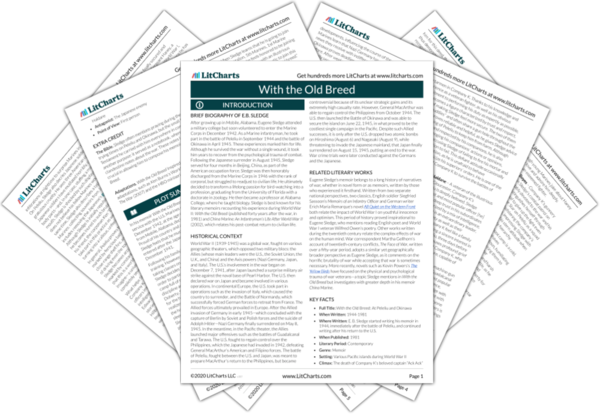Sledge’s discomfort with taking on the role of officer shows his humility, sensitivity, and sense of friendship. His unwillingness to send other people to their death reveals not lack of confidence but, rather, a deep respect for human lives and an understanding of war as inhuman violence. His desire to remain in Company K also underlines the importance friendship plays in his life, as he gives greater weight to remaining with his companions than taking on a more prestigious role that could bring him greater material comforts.
